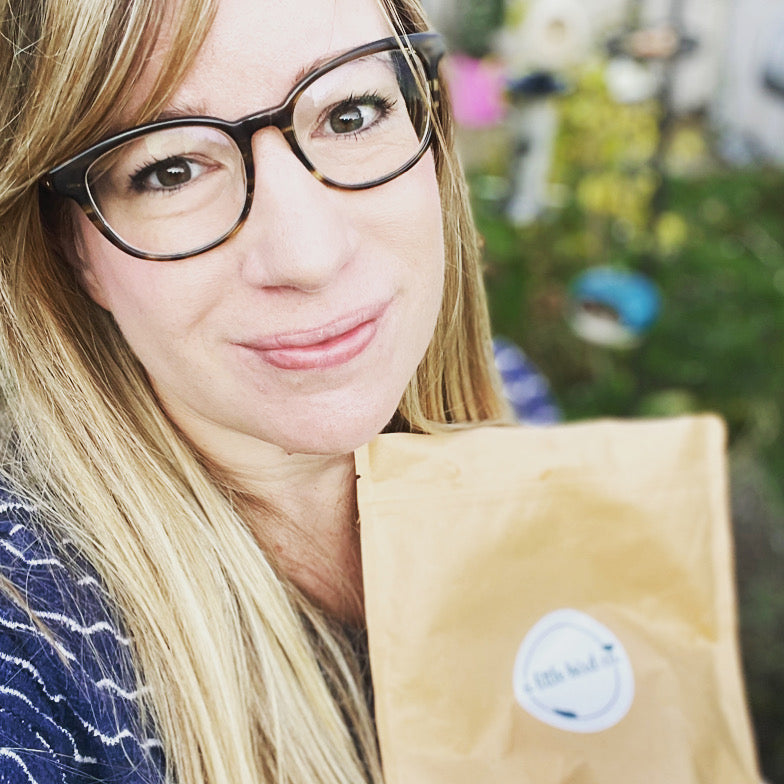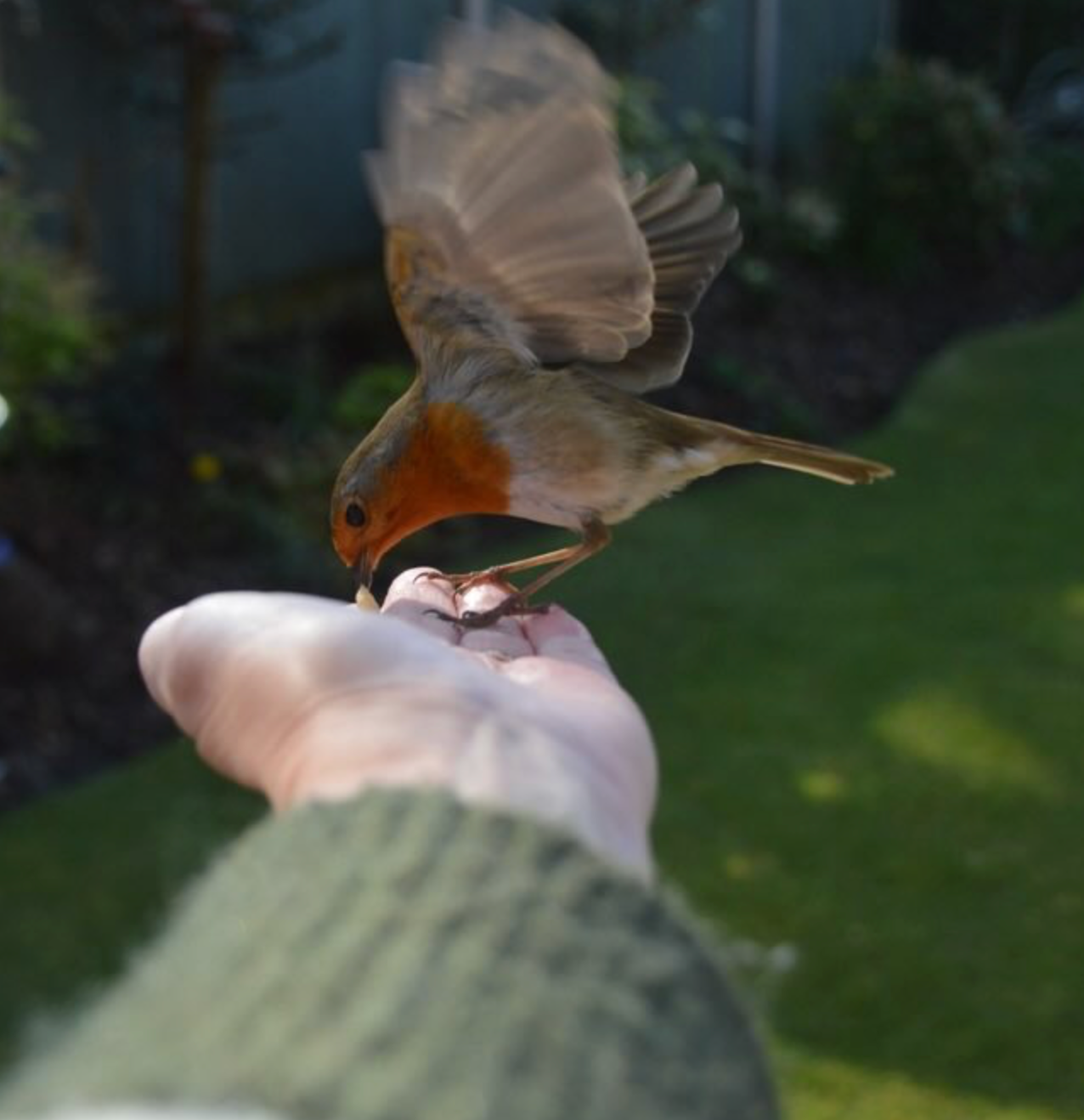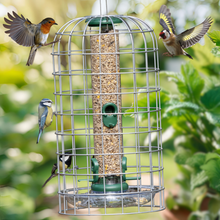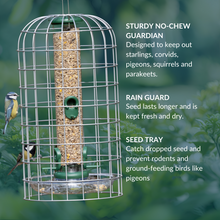If you love watching the birds in the garden as much as you love having beautiful borders and containers, you will probably be reluctant to tackle any slugs and snails with pellets for fear of endangering your local wildlife. I always try my best to make sure that I keep my garden pesticide free to maintain the natural ecosystems that exist local to my garden and keep my garden birds safe.
There are a number of products on the market that claim to reduce the number of slimy visitors, including:
Nematodes to stop slugs
These work well for a lot of gardeners and they are a safe option for birds and pets too. They are tiny multicellular insects that inject bacteria into the slug or snail’s body and kill them. They arrive in a box and you can apply them using a spray connector attached to your hose, or by adding them to a watering can and watering into the soil. The soil needs to be 5 degrees or more for them to be effective, and they need to be reapplied every 6 weeks. They are a biological (rather than chemical) form of pest control, and you should see results within 2-4 weeks. Some gardeners have found that the nematodes also destroy crops, and it is important to re-apply regularly.
Beer traps to prevent slugs
These can be bought from the shops or made by burying a container into the soil. Become a beer sommelier and offer your slugs and snails some cheap lagers – the goal is for them to go into the container to drink the beer and become trapped.
Do barriers of egg shells, coffee grounds or sharp gravel work to prevent slugs?
You can try sharp barriers like egg shells and sharp gravel or coffee grounds around any tender plants – the slugs are thought to be reluctant to want to cross the barrier. Unfortunately these didn’t work for the persistent slugs and snails in our garden – they particularly seemed to enjoy eating the egg shells!
Does garlic spray stop slugs?
Legend has it, if you boil garlic cloves and bottle the resulting liquid, you can spray it over your plants and your slugs and snails will be put off by the taste.
Copper rings to prevent slugs
This can be bought in strips to put around the base of plant pots, in a mesh form to circle around the base of plants or even as copper impregnated weed control fabric – the slugs are thought to receive a small shock from the copper which prevents them from getting to the plants (although ours have discovered that they can vault the copper tape with enough practice.
Do wool pellets stop slugs?
When these are placed around the base of your plants in a wide barrier, they irritate the slugs as they slide across. Some slugs will persist though for a particularly appealing plant.
Maybe we have particularly persistent slugs and snails in our garden – I didn’t find that any of the above methods worked. My only solution to the slug and snail problem was to take a step back and look at the ecosystem as a whole. What could I plant that the slugs wouldn't want to eat, and what could I encourage into the garden to feed on the slugs?
Make the most of your natural ecosystem
Wild birds are predators of slugs and snails, so you can encourage them into your garden with a nutritious and reliable supply of food and you should soon find that they will also start to eat those pesky slugs and snails. You can also add a natural pond to your landscaping, which will encourage frogs (another predator of slugs and snails). Read more about using birds as pest control in this blog post.
Planting to deter slugs
You can edit your planting scheme to plants that the slugs don’t want to eat. In our garden, this is the only solution that works. Although it might feel like a restrictive solution, there are so many beautiful and productive plants that slugs don’t enjoy and your garden will be full of colour and variety. The list of slug-favoured plants can vary from garden to garden, but here is a short list of plants that are generally disliked by slugs.
- Roses
- Hesperis Matronalis (Sweet Rocket)
- Lunaria Annua (Honesty)
- Digitalis
- Erysimum (Wallflower)
- Narcissi
- Alliums
- Linaria Purpurea
- Cosmos
- Gaura
- Nepeta (Catmint)
- Cerinthe Major (Honeywort)
- Dianthus
- Cranesbill (Hardy Geranium)
- Penstemon
- Verbena Bonariensis
- Agastache
- Hellebore
- Aquilegia
- Astrantia
- Antirrhinum (Snapdragon)
Shrubs are generally safe too – try growing Rhododendron, Virburnum and Philadelphus.
While you can limit your planting to the above list in the borders (and experiment all the time with other slug-prof options), that doesn’t mean you have do without the other plants you love. Raised beds are a great option for other plants you want to grow, and if they’re high enough they will deter slugs. We plant dahlias and sweet peas in containers constructed using heat treated pallet wood, and our fruit and vegetable plants are in a low bed made from decking wood – the slugs don’t seem keen on crossing the rough surface of the wood.
You can even add the plants you love in the border if you are strategic enough – leave a space in your planting scheme, planting any plants enjoyed by slugs in dark green containers and placing them up high on a potting bench or table, safe from the slugs until they are mature and ready to bloom. Before you place the container in your flower bed, glue some waterproof 80 grit sandpaper around the circumference of the container, and apply a wide band of Vaseline above the sandpaper. The two barriers should deter the slugs and your plants should also be big enough to withstand any slug attacks.
And then of course there are hanging baskets – you can grow cascading displays of your favourite plants (try Tumbelina and Calibrachoa) because even our slugs can’t work out a route up there!
We hope this list has been useful – have you found a wildlife-friendly way to avoid the slugs eating your plants?


















